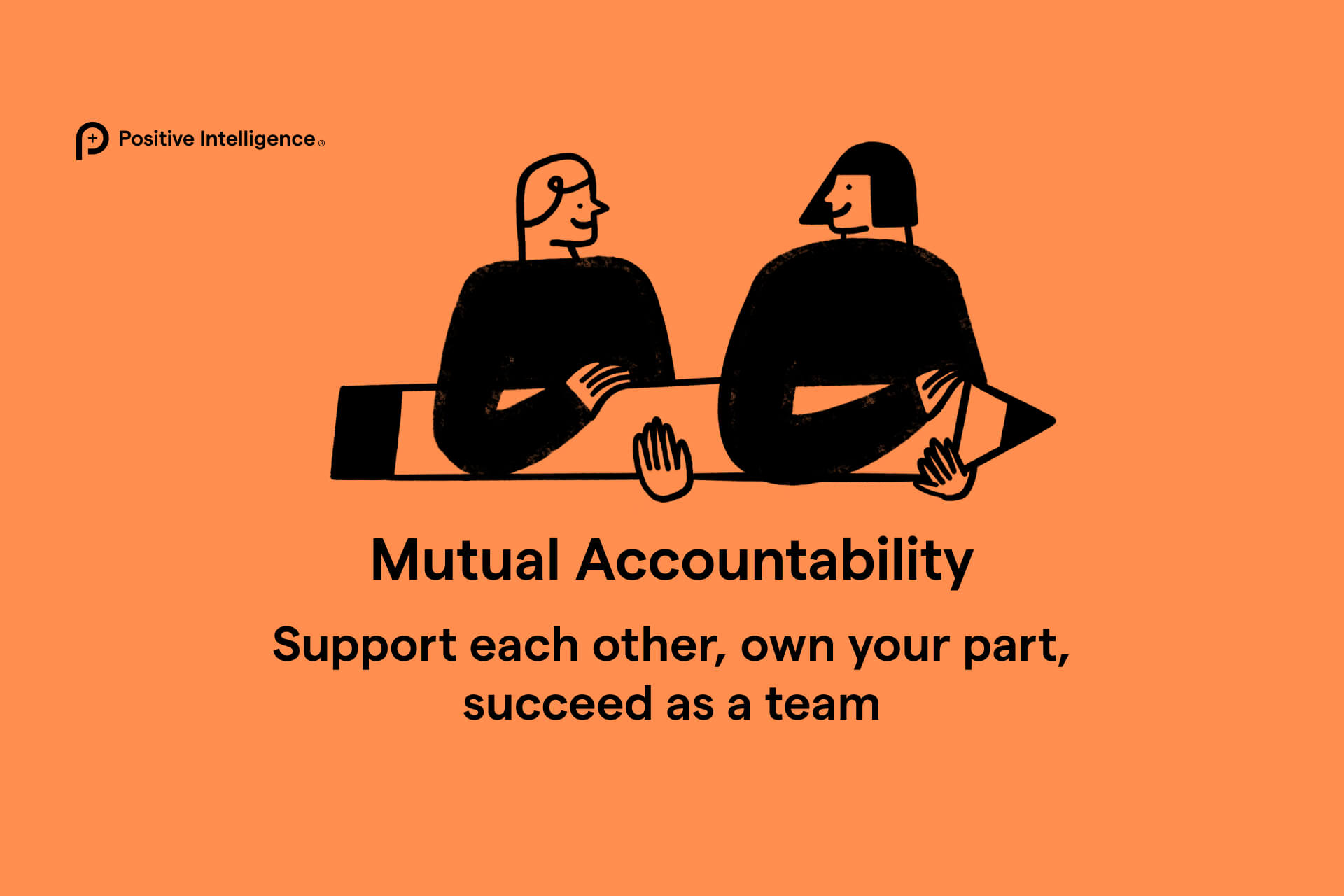
Individual
A self-facilitated program to boost your mental fitness for personal and professional growth
This website will offer limited functionality in this browser. We only support the recent versions of major browsers like Chrome, Firefox, Safari, and Edge.

Select the experience that fits your needs

A self-facilitated program to boost your mental fitness for personal and professional growth

A self-facilitated mental fitness program with exclusive pricing for 2 to 25 individuals

Explore coach-led mental fitness programs with workshops tailored to your organization
Mental Fitness

As a leader, you know the power of a team that’s in sync. But does your team operate as one, or are they just working side-by-side?
Often, teams are more like a group of individuals moving in different directions. A high-performing team, though, is like a sports team: you win together, or you lose together. Every single person fully invests in the collective outcome.
In many teams, most of the accountability falls on you, the leader. When that happens, you end up doing all the heavy lifting. The team may miss opportunities, and team growth can slow down, sometimes leading to disengagement.
But imagine if every single person on your team felt responsible for the team’s success, not just their own. This is what Mutual Accountability is all about.
Mutual Accountability means your team members hold each other responsible for both results and how they work together. It’s not just about waiting for you, the leader, to step in.
When everyone commits to this, it unlocks powerful leadership across the whole team. Everyone looks out for each other and identifies issues right away. This leads to higher performance, greater collaboration, and a more positive team dynamic.
Even when you want Mutual Accountability, your Saboteurs — those unhelpful automatic mental patterns — can get in the way. They can make shared ownership feel challenging.
For example, if you have the Controller Saboteur, you might find it hard to let go and trust others to take charge, leading you to micromanage.
If the Judge Saboteur is active, you could see peer feedback as a personal attack or a power play, making you defensive.
Or, if the Avoider Saboteur is present, you might shy away from challenging a teammate to avoid discomfort, letting issues fester.
These patterns can stop your team from genuinely stepping up together. Building mental fitness helps you spot these Saboteur patterns in yourself and others, so you can choose a better path.
Mutual Accountability is the final pillar of a high-performing team, and it relies on the strength of the other three. All four pillars work together, building on each other to create an exceptional team.
You and your team connect to personal growth, team success, and wider impact. Triple Purpose fuels a deeper investment in each other’s success.
You build psychological safety through honest, supportive relationships. Earned Trust makes it safe to give and receive feedback, which is essential for Mutual Accountability.
You address differences constructively, without fear or avoidance. Healthy Conflict allows for open discussions about results and conduct without damaging relationships.
When these first three pillars are strong, they create the foundation where Mutual Accountability can flourish.
When you and your team learn to spot your Saboteur patterns, you can choose a better path. Your Sage — the wise part of your mind — helps you welcome accountability from peers as a gift for growth. It encourages you to show genuine enthusiasm for each other’s achievements and see challenges as chances to help teammates grow.
This perspective helps your team build a culture where everyone feels shared ownership. You move from suspicion of peer accountability to welcoming it as a gift that helps everyone grow.
In a team with strong Mutual Accountability, you commit to successfully achieving results together. You challenge and support each other when someone is falling behind, and you show real concern for each other’s achievements, not just individual wins.
Mutual Accountability covers how people act, not just what they deliver. This boosts high performance and positive team behavior. You encourage leadership across the team, ensuring problems are addressed because everyone is looking out for each other.
Building a team with strong Mutual Accountability doesn’t happen by chance. It requires clear goals, shared understanding, and consistent practice.
Through Positive Intelligence’s PQ-Powered Teamwork, you learn to establish this foundation and create lasting positive habits as a team. You’ll learn practices that help your team stay clear-headed and focused during challenges, and support each other’s performance and well-being.
Mutual Accountability is also a powerful way to bring all the pillars of high-performing teams together. It strengthens your team’s Triple Purpose, increases Earned Trust, and makes Healthy Conflict possible. When your team embraces these four pillars, you grow stronger, more connected, and more successful at driving results.
Mutual Accountability is a skill and a mindset any team can develop. It starts with understanding where your team is today. Take the free PQ-Powered Teamwork Assessment to see how your team scores across the 4 Pillars of High-Performing Teams, including Mutual Accountability.

